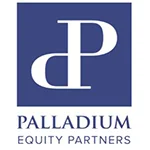 Art Stevens Art Stevens |
Let’s face it: Many of us are familiar with the numerous advantages an owner has when selling a PR agency. There’s the appeal of transferring your firm to new owners and generating liquidity while also allowing you to remain involved in the business if you desire. The process also presents an opportunity to maintain your involvement with the agency you worked so hard to build—albeit in an evolved role—serving as a consultant or advisor to help the buyers ease into the transition.
But are there any obvious benefits to your loyal team members and employees?
Understandably, many employees feel anxious about all the changes that come with an agency sale: the uncertainty, fear of job loss and potential culture clashes, to name a few.
Beyond the palpable change of being shifted around and restructured internally, the continued performance and loyalty of your remaining employees depend on how your M&A process is implemented.
In my experience handling countless successful PR agency M&As over the years, I’ve observed that the benefits of selling a PR agency don’t only accrue to the owner but to their loyal staff as well.
Sure, lives change sometimes, which can be difficult. But in the end, it’s usually for the better. Employees can find new routes to progress in their careers. The whole culture shift can itself be a positive one.
Top 10 employee benefits following an agency sale
An agency sale should be viewed as fundamentally advantageous for employees. They often create more robust firms that remain operational and, in many cases, become even more competitive. Whether the goal of the M&A is to “save” a firm from failing or merely to scale it up and work toward molding it into a more competitive organization, they typically put companies in a stronger position. There are several positive impacts that an agency sale can have on employees, depending on the terms of the sale and the specific circumstances. Here are some potential benefits:
- New career ladder to success. Opportunities will arise in larger organizations that simply don’t exist in smaller agencies. This can open new doors for your staff members, giving them the chance to move into a more senior role. And if the merger results in a more financially stable business, there’s also the possibility of eventual higher compensation.
- Personal growth and development opportunities. When a M&A takes place, there are often training opportunities, which, in turn, gives enthusiastic team members access to new skills. Keep in mind: staff members want to feel like they’re learning, growing and improving. And with new people in the mix, there are also new experts and colleagues to learn from and evolve as a team.
- Soft skills development. Believe it or not, new or unfamiliar situations can help your staff sharpen soft skills, such as time management, critical thinking, conflict management techniques and teamwork. Previously established teams may evolve due to the addition of staff from the acquiring agency, which can allow them to put their communication skills to good use. Collaborating with new team members can also expose your staff to diverse perspectives.
- Different point of view. Staff members gain better perspectives just by being on the team of a more sizeable, growing company. Further, the brand recognition of a more prominent agency can open doors for employees in ways that don't necessarily materialize when they work at smaller firms.
- More—and better—benefits. In some scenarios, the staff of the newly created agency receive new stock options or other benefits as a reward/incentive. Depending on the terms of the sale, these may include other financial incentives such as bonuses or profit-sharing arrangements. The new entity also may offer enhanced benefits packages, such as healthcare, retirement plans and other perks.
- Better job security. An agency sale can positively impact staff members if the firm was in trouble or there was already a fear of possible job loss. Merging with another agency often creates a more stable business, giving employees more security and stability in their roles.
- Sheer longevity. Typically, an M&A means strengthened job security for those staffers who remain with the agency post-merger. Employees will likely be relieved that their jobs may no longer be at risk. And a healthy future for the agency means that employees can grow their careers within the business, which is advantageous to those interested in more executive-type or management positions.
- Morale booster. The newly formed PR agency might provide a different company culture that can deliver positive change for staff and the agency overall.
- Better fit. In some cases, staff members may feel out of place within their department, and it can cause considerable frustration and stress. There are often opportunities for some team members following an agency sale to shift into a new area of the business, giving them a fresh start with a different team. Remember, companies thrive when staff members are satisfied and happy.
- Client base growth. If the acquiring agency has a wider net or access to additional industries, it can open new opportunities for staff to work on a more diverse range of projects and gain experience in different avenues.
Change can bring with it opportunities
PR agency sales are significant events that can help a firm grow. Yet, by their very nature, they impact the employees of everyone involved. For this reason, it’s essential to consider the consequences M&A will have on teams before it’s complete. At the end of the day, it takes a top-down approach to ensure that the newly formed workplace is a pleasant, cheerful, productive environment for all—before, during and after the entire process.
Developing a careful, strategic game plan across both entities involved in an agency sale is vital to ensure a smooth transition and motivated team members. And whether your experience is seamless depends on many factors surrounding company culture, chemistry and collaboration, and the blending of best practices of each firm.
Communication is key to ensuring both seller and buyer are content and that the agency teams and clients across both have a positive experience throughout the process—ideally, along with guidance from an experienced facilitator.
***
Art Stevens is Managing Partner of The Stevens Group, a firm that specializes in facilitating mergers and acquisitions in the PR and digital/interactive space.


 Spectrum Science acquires clinical trial recruitment and engagement solutions provider Continuum Clinical.
Spectrum Science acquires clinical trial recruitment and engagement solutions provider Continuum Clinical. How PR agency owners can navigate the M&A process in a way that yields a rewarding experience for both owners and the teams they leave behind.
How PR agency owners can navigate the M&A process in a way that yields a rewarding experience for both owners and the teams they leave behind. Kekst CNC reps Palladium Equity Partners and its joint venture affiliate, Palladium Heritage, on the acquisition of National Auto Parts, USA;, NAP San Diego; and National Auto Parts-Oakland to form Collision Auto Parts, a platform serving customers in the automotive aftermarket collision repair sector.
Kekst CNC reps Palladium Equity Partners and its joint venture affiliate, Palladium Heritage, on the acquisition of National Auto Parts, USA;, NAP San Diego; and National Auto Parts-Oakland to form Collision Auto Parts, a platform serving customers in the automotive aftermarket collision repair sector. ICR has acquired Bullfrog + Baum, the 23-year-old PR shop focused on the hospitality, lifestyle, travel and consumer marketing sectors.
ICR has acquired Bullfrog + Baum, the 23-year-old PR shop focused on the hospitality, lifestyle, travel and consumer marketing sectors. So, you’ve finally decided it’s time to sell your agency. Now what?
So, you’ve finally decided it’s time to sell your agency. Now what?


 Have a comment? Send it to
Have a comment? Send it to 
No comments have been submitted for this story yet.